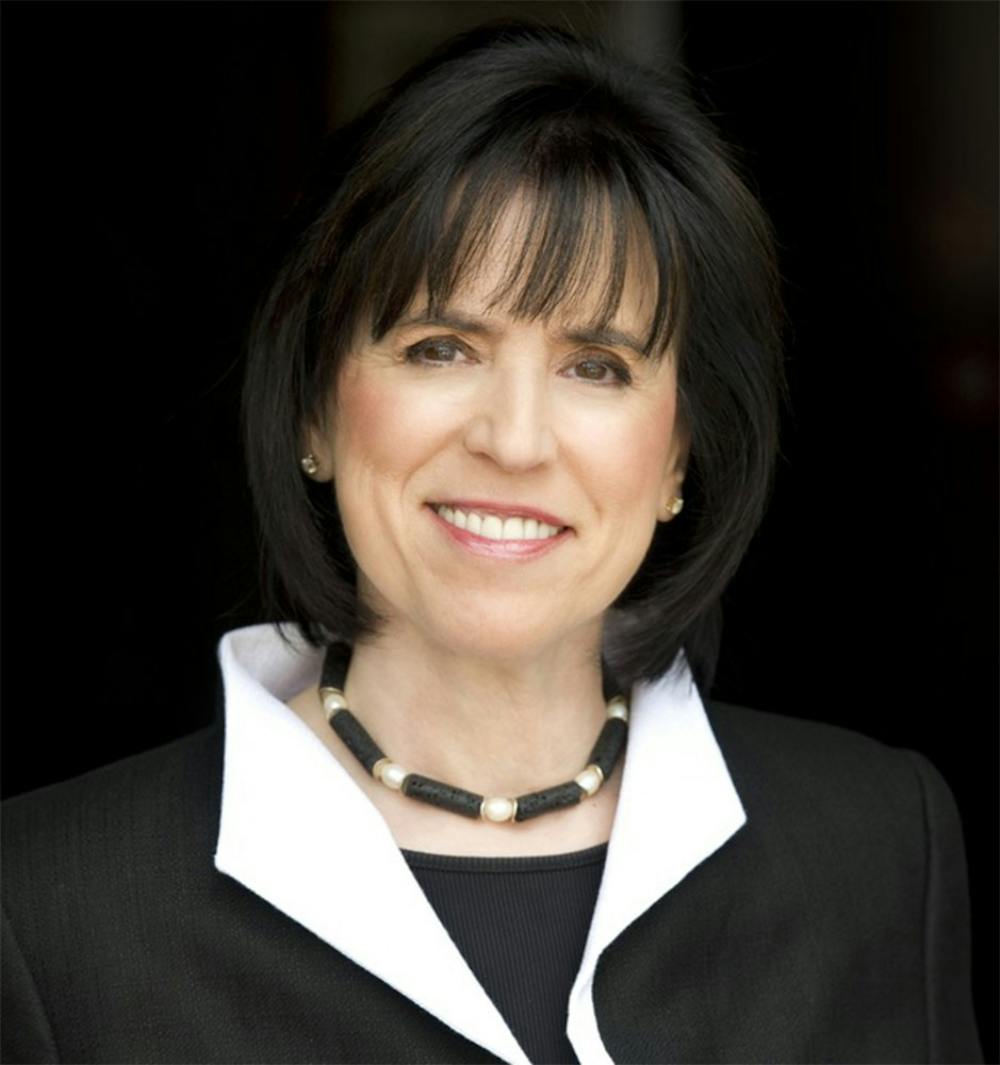Leve, a producer for more than 30 years and an IU alumna, has won four Tonys, including 2014’s Best Revival of a Musical for “Hedwig and the Angry Inch,” which originally starred Neil Patrick Harris and currently stars Andrew Rannells at the Belasco Theatre in Los Angeles, California.
She spoke to about 50 people Monday evening in a public Q&A, the first of her three appearances this week as a visiting scholar. Leve will also do a Q&A to accompany the screening of “Hedwig and the Angry Inch” at 7 p.m. Tuesday at the IU Cinema and give a talk, titled “Producing Theatre,” presented by the University Players at 5:15 p.m. Wednesday at the Wells-Metz Theatre.
Leve spoke on a variety of topics, including the intricacies of producing a Broadway musical, the reach of her past projects and her current and future projects, including this year’s “An American in Paris.” She emphasized the need for collaboration in several facets of her job.
“I think inclusiveness really works to my advantage, because I’m then drawing on some very talented people,” she said.
She said that philosophy applies to parts of her job ranging from interactions with the creative side of productions — writers, composers, choreographers — to funding the productions. The latter makes up a significant portion of her job, as she works with donors and investors to secure varying amounts of money — from $50,000 on her first show, “Isn’t It Romantic,” to more than $2 million.
Finding funding isn’t her job alone as shows generally have multiple producers, including a lead producer who oversees a project from its early phases to the stage, and helps pass communication between producers and creatives, Leve said. Still, she said, for her to sign on to a project as a producer, she needs to see two things: strong commercial viability — except in a few situations — and personal excitement.
“In choosing a show, it’s almost like falling in love,” she said. “You see something and you feel so excited and so energized and so passionate, you say, ‘I’ve got to do this.’”
Leve said she only regrets turning down two jobs — “The Vagina Monologues” and “Urinetown” — both because she feared she’d have a hard time securing funding due to the titles. Both shows became critical successes.
Still, she said, she’s been fortunate in her career path. In 1994, she said, she was in New York City for a month producing a show for a friend when several producers on board for “STOMP” dropped off. She took one of the openings, and the show is still running 21 years later. She also worked on an IMAX film adaptation of the show, “Pulse: a STOMP Odyssey,” which won a Giant Screen Theater Association’s Film Achievement Award
She said that job has freed her to produce occasional shows that might not be as commercially viable, such as “ANN,” a one-woman portrait of former Texas governor Ann Richards written by and starring actress Holland Taylor. She also cited the IMAX film as one of a few chances she’s had to reach a larger audience.
She said she’s currently working on another film, an adaptation of “The Beebo Brinker Chronicles,” with actresses Lily Tomlin and Rachel Weisz and “Olive Kitteridge” writer Jane Anderson.
“I can start on a very small scale, and it can reach people all over the world,” she said.
The audience for the Q&A included several students in the theater department. Junior Brandon Porter and sophomore Mary Beth Black both said they enjoyed being able to hear about productions from the side of a producer, especially because non-professional theater doesn’t have commercial producers.
They also both said they appreciated her ideology of inclusiveness and her general excitement for theater.
“It’s good to know that producers have an emotional connection to things they want to work on,” Black said.
Leve said her inclusive philosophy doesn’t just include working for logistical ends. It also extends to creating emotional connections between collaborators.
“It’s such a collaborative medium,” she said. “You need talented people in every aspect of it ... You depend on them for their expertise, but you have to be open. You have to show them you care.”






